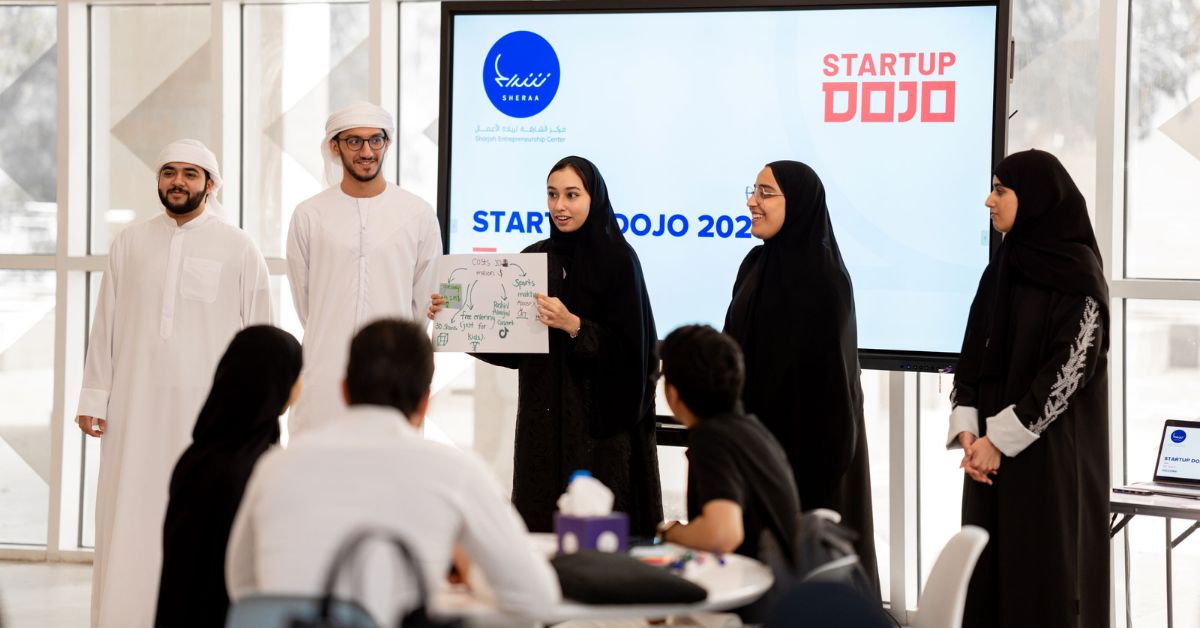DUBAI, UAE — The future looks bright for Arab youth, especially entrepreneurs, as almost half of them plan to start their own businesses in the next five years, according to the ASDA’A BCW Arab Youth Survey. This trend signifies a significant shift in youth preference from government jobs to entrepreneurship .
This comprehensive survey involved face-to-face interviews with 3,600 young Arab citizens aged between 18 and 24 across 53 cities in 18 Arab countries, including South Sudan, marking its first inclusion. The survey took place from March 27 to April 12, 2023, aiming to capture a more nuanced understanding of Arab youth opinion.
The survey findings come amid high unemployment rates among youth in the region, surpassing 26 percent, according to a World Bank report. The United Nations has identified a pressing need to generate 33.3 million new jobs by 2030 to accommodate the rapidly growing youth demographic in the labor force.
About half of the surveyed youth expressed an interest in entrepreneurship, particularly in the Gulf Cooperation Council (GCC) countries, where 53 percent of the youth showed the highest level of interest, followed by Levant (39 percent) and North Africa (37 percent). However, respondents from North Africa and Levant found starting a new venture to be more challenging, with 73 percent and 79 percent respectively finding it very difficult.
Key numbers from the survey • Almost 50% of Arab youth plan to start their own businesses within the next five years, showcasing a substantial shift towards entrepreneurship. • The ASDA’A BCW Arab Youth Survey involved face-to-face interviews with 3,600 young Arab citizens, aged between 18 and 24, across 53 cities in 18 Arab countries. • Unemployment rates among youth in the region surpass 26%, as per a World Bank report. • The United Nations has identified a need to generate 33.3 million new jobs by 2030 to accommodate the rapidly growing youth demographic in the labor force. • About half of the surveyed youth expressed interest in entrepreneurship, with the highest interest seen in the Gulf Cooperation Council (GCC) countries at 53%, followed by the Levant at 39% and North Africa at 37%. • Starting a new venture is seen as a challenge in North Africa and the Levant, with 73% and 79% of respondents respectively finding it very difficult. • Government-backed loans, grants, and tax breaks are viewed as strong incentives to start businesses among Arab youth. • Preference for government jobs has decreased, with fewer than one-third (30%) of the respondents holding this preference compared to almost half in 2019. • Interest in entrepreneurship is rising among Arab youth, with 33% showing this preference, an increase of 13% from 2022. • For the 12th consecutive year, the United Arab Emirates has been named the most desirable country to live in by Arab youth. • Saudi Arabia and Qatar appear in the top-five list of model nations for the first time in nine years.
Young people have also voiced that government-backed loans, grants, and tax breaks could motivate them to establish businesses, with the technology sector being the most attractive, followed by e-commerce, creative industries, manufacturing, real estate, and food industry.
Interestingly, there’s been a decrease in the preference to work in the government sector, as fewer than one-third of the respondents (30 percent) still hold this preference compared to almost half in 2019. However, there’s a rising interest in entrepreneurship, with 33 percent of Arab youth showing this preference, up by 13 percent from 2022.

Sunil John, President, MENA, BCW, and Founder of ASDA’A BCW, emphasized the significance of the survey findings and the ongoing efforts. “Young Arabs see these countries as model nations because they appreciate the opportunities for jobs and prosperity being created and the potential to realize a better, more fulfilling life for themselves,” he said.
For the 12th consecutive year, the United Arab Emirates has been named as the most desirable country to live in by Arab youth. This favorable view extends to other GCC countries, with Saudi Arabia and Qatar appearing in the top-five list of model nations for the first time in nine years. The UAE’s safety and security, growing economy, effective leadership, clean environment, and ease of starting a business were cited as key attributes for its favored status.








